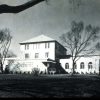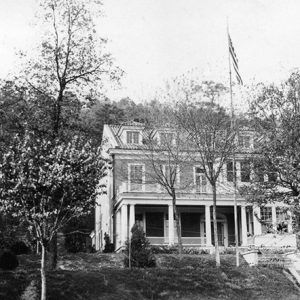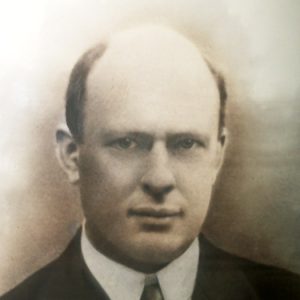calsfoundation@cals.org
Harry M. Hallock (1867–1913)
Harry M. Hallock served as the sole medical director of what was known at the time as Hot Springs Reservation. In 1832, the U.S. Congress set aside the reservation, which became Hot Springs National Park in 1921, to preserve the springs for public benefit. Hallock introduced controversial regulations that improved the quality of medical care in Hot Springs (Garland County), while also earning him the scorn of some local elites. Chronic illness and political opposition drove him to suicide.
Henry Hallock was born on October 14, 1867, in Jersey City, New Jersey. He graduated from the College of Physicians and Surgeons in New York City in 1890. He married Jannette Halford; they had a son named Halford and a daughter named Elizabeth. After practicing medicine for two years as a civilian, Hallock joined the U.S. Army as a surgeon on November 4, 1892. As a result of health problems suffered while in the service, he received a medical discharge on May 20, 1908, and returned to private medical practice. This discharge was made final by the fact that he failed new regulations put in place by President Theodore Roosevelt requiring all military officers pass a horsemanship test.
A federal inspection of Hot Springs in 1910 revealed serious problems, including corruption, mismanagement, and poor medical care, at the reservation. In response, the Department of the Interior created the new position of medical director for the Hot Springs Reservation and gave the job to Hallock, who unapologetically fired nearly one out of every three bathhouse attendants for reasons such as alcoholism, poor hygiene, and theft. Hallock also fought for licensing for all bathhouse attendants, improved cleanliness of all bathhouses, the renovation of outdated medical equipment, and an end to corrupt business practices on the reservation. Hallock personally taught classes for bathhouse attendants and denied licenses to applicants who failed his stringent examinations. Hallock sent reports of his reforms to Washington DC and published them in the Journal of the American Medical Association.
Hallock’s reforms improved the quality of medical treatment at Hot Springs and earned him praise from Washington, but he also angered some powerful people in Hot Springs. Numerous critics, who included Hot Springs Reservation superintendent Harry Myers, disagreed with Hallock’s expensive reforms. They also took issue with his high salary of $4,400 per year (Superintendent Myers earned only $3,000 per year) and the expensive federal construction projects at the medical director’s residence. By May 1913, at least one local journalist called for Hallock’s dismissal and the elimination of the medical director position. In addition to dealing with increasing political opposition, Hallock continued to suffer from the health problems that led to his medical discharge, and he endured a series of painful surgeries.
On May 19, 1913, reservation staff realized that Hallock was not in his office. A search of his desk revealed a note stating: “have been fighting melancholia for weeks, and can no longer resist impulse to destroy my family and myself.” Reservation staff discovered his body later that afternoon. Hallock had dressed in his military uniform, walked into the woods near Whittington Park, and ended his life with a gunshot to the head. He is buried at Arlington National Cemetery. Hallock’s reforms live on in the twenty-first century and form the basis for modern regulations at Hot Springs National Park.
For additional information:
Cockrell, Ron. The Hot Springs of Arkansas, America’s First National Park: The Administrative History of Hot Springs National Park. Omaha, NE: U.S. Department of the Interior, National Park Service, Midwest Regional Office, 2014. Online at https://www.nps.gov/hosp/learn/historyculture/research.htm (accessed July 11, 2019).
Hallock, Harry. “Some Aspects of Hydrotherapy in the United States.” Journal of the American Medical Association 61 (July 26, 1913): 260–262.
Hill, Mary Bell. Hot Springs National Park. Charleston, SC: Arcadia Publishing, 2014.
“Medical Director Took His Own Life.” Arkansas Democrat, May 20, 1913, p. 3.
Thrasher, Christopher. “‘To Destroy My Family and Myself’: The Story of Harry Hallock, Hot Springs Reservation’s Only Medical Director.” The Record (2019): 3.1–3.16.
United States Adjutant-General’s Office. U.S. Army Register for 1913. Washington DC: Government Printing Office, 1918.
Christopher Thrasher
National Park College
 Early Twentieth Century, 1901 through 1940
Early Twentieth Century, 1901 through 1940 Health and Medicine
Health and Medicine Director’s Residence
Director’s Residence  Harry Hallock
Harry Hallock 



Comments
No comments on this entry yet.